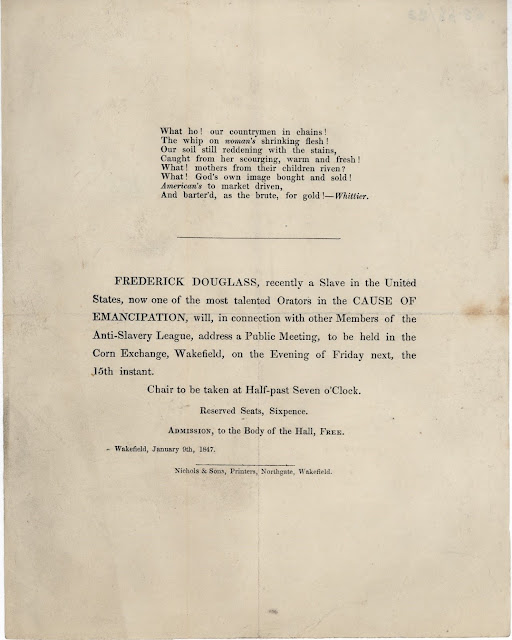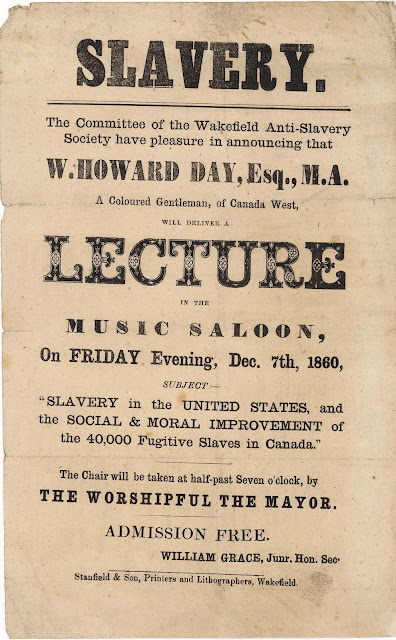In the second of our series of four blog posts highlighting Black History in the Wakefield district, we're looking at these anti-slavery campaigning leaflets found in our collections.
In the mid-1800s Wakefield was very active in anti-slavery campaigning, promoting human rights and organising meetings and lectures in various venues across the district.
Please note: an historical term used to describe Black people is used in the second leaflet. This is not language that to be used or condoned today.
Frederick Douglass, 1847
 |
| A leaflet advertising a talk by Frederick Douglass at the Corn Exchange in Wakefield on 15th January 1947 (full transcription available in image alt text) |
Frederick Douglass (1818? - 1895) was an anti-slavery campaigner and social reformer. He had escaped slavery himself and dedicated his life to campaigning against the practice and sharing his experiences. Douglass became the first Black U.S. Marshal and is famous for his first autobiography, Narrative of the Life of Frederick Douglass, an American Slave, Written by Himself.
You can read his full speech given at this lecture here.
William Howard Day, 1860
 |
| Leaflet advertising a lecture by W. Howard Day in the Music Saloon, Dec 7th 1860 (full transcription available in image alt text) |
This leaflet advertises a lecture given by William Howard Day in the Music Saloon on Wood Street in Wakefield in December 1860. Day (1825-1900) was born in New York City, and was the only Black graduate from Oberlin College in 1847 where he received his M.A. in 1859. He was an abolitionist, editor, publisher, printer, teacher, lecturer, civic leader and clergyman.

It would be great to see any activities in Wakefield which came before the 1807 act.
ReplyDeleteHi Chris, you might like to get in touch with Wakefield Local Studies? They may have some election leaflets which would feature William Wilberforce and his activity in our local area pre-1832. https://www.wakefield.gov.uk/libraries-and-local-history/local-archives-and-family-history/
Delete